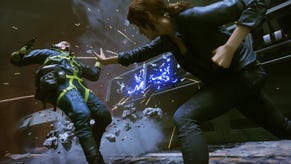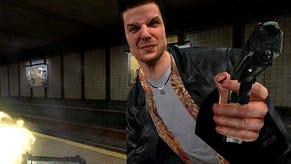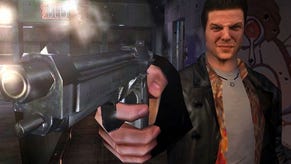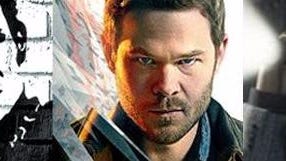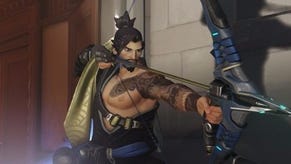Retrospective: Max Payne
Soft boiled.
The phone rang with a shriek that would wake the dead before trying to sell them double glazing for hell. I answered. It was Tom Bramwell, his words entering my ears as if a lava flow of rage.
"I want a retro of Max Payne on my desk by the morning, Walker. This is your final chance."
I sneered at the wall. The wall looked back at me with blank indifference. "Sure," I muttered, "Sure boss, I can do that for you."
The game was on Steam, not exactly hard to get hold of. Six pounds. Nothing compared to the fee I'd be dropping on Bramwell's desk for getting the job done.
I stared out of the grubby window as the game downloaded, rain beating against the side of my house like an angry window cleaner. One day. One day I'd have my revenge for the mysterious events in my past that I'm only alluding to at this point. One damn day.
It seemed simple enough. I'm no stranger to retrospectives. You play the old game, you write about it. It sounds simple. It's never simple.
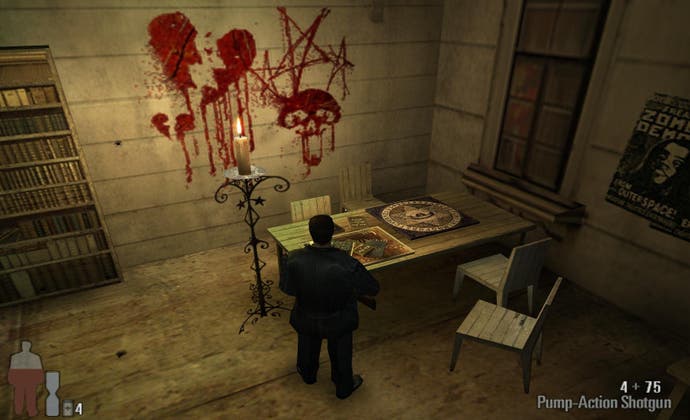
The third-person shooter had been our first dance with Bullet Time. Sure, we've all been to bed with the gimmick now, but this was the first flirtation. For reasons unknown, Payne could enter a slow-motion world like a hand enters an oven glove. It doesn't stay forever, but it can handle a lot more heat when it's there. Able to react in real-time, it allowed Max to demonstrate his super-reflexes, filling enemies with bullets like he was making bullet pie with a human crust.
Oh crikey, I can't carry on with that. Tempting as it might be to write the entire piece in the style of the absolutely horrendous writing in Max Payne, it's actually pretty hard to do it any worse. This is a game that contains, within its graphic novel cut-scenes, lines like:
"The cops arrived, sirens singing in the off-key harmony of a manic-depressive choir."
The static cut-scenes, rotoscoped photographs, are laid out like a comic, the narration and dialogue presented in the appropriate bubbles, voiced by actors.
On some level I can only find respect. It's nigh-impossible to come up with a piece of writing that's as equally awful as it is brilliant. However, more often it's just plain bad. Max informs an enemy,
"Vinnie Gognitti, just the man I've been killing to see."
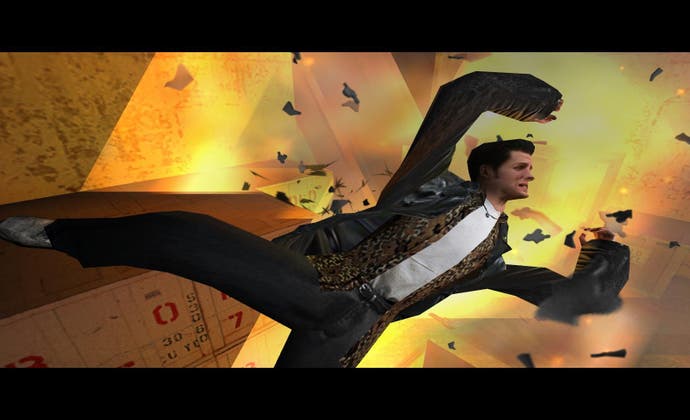
Or how about:
"I hadn't asked for this crap. Trouble had come to me, in big dark swarms."
"I had known there'd have to be a catch in it somewhere, and this one was the Empire State Building of catches."
I'd argue it's something to be treasured. Normally bad game writing is just plain boring. Goodness knows how many shooters seem to have been scripted by a machine more normally used for brewing instant coffee. (Oh dear, it's happening again.) Dreary nothingness, excusing one scene of shooting enemies into the next. At least here the endless scenes of shooting enemies are strung together by what might well be a form of poetry that's simply above my head.
However, rather more importantly, those scenes of shooting people are still really rather a lot of fun.
There's not really much to Max Payne. You're put in a building, and you have to kill everyone inside it. Room to room you go, picking them off from your extensive arsenal of weapons, occasionally slipping into slo-mo for trickier situations. But like any shooting gallery, that's more than enough to be entertaining.
At its original release it was a remarkable thing to behold. Now, because absolutely everything else has copied it, it's a very familiar place to play. Since it's in third-person you use the super-cheaty trick of swinging the camera to look around corners without having to put Max in the line of fire, then jump out, ideally in Bullet Time, and let loose your shower of metal fury. Like a furious thunderstorm.
(Okay, before we carry on, here's another favourite line: "He was trying to buy more sand for his hourglass. I wasn't selling any.")


